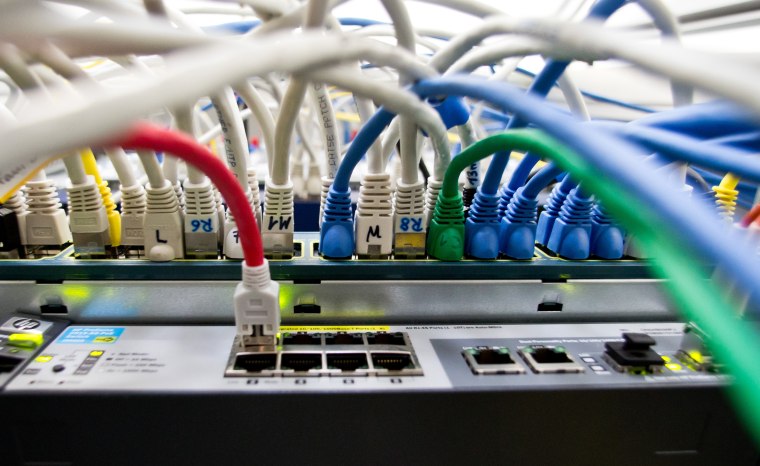For sale: Your internet browsing history and habits.
If that sounds like a scary thought, it could become a reality. The Senate passed a joint resolution on Thursday, barring the Federal Communications Commission from enforcing rules passed last year that would ban internet, cable, and mobile providers from selling your data without your consent.
While the measure would still need to clear a House vote and be signed by President Donald Trump, the idea is raising questions about what — if anything — people can do to protect their privacy.
Related: Senate Votes to Let ISPs Sell Your Data Without Consent
Robert Siciliano, CEO of IDTheftSecurity.com told NBC News the best way to protect yourself is by installing a VPN — that's a virtual private network. This piece of software will encrypt your data on the internet.
A quick Google search will lead to some VPN options, which range from free to a few dollars per month. IPVanish VPN and Private Internet Access VPN are two popular choices.
You'll also want to start paying attention to cookies — those little pieces of data sent by a website and stored on your browser. They're designed to make your life easier, letting you skip certain steps, such as re-entering your login information. However, they can also be clever tools for keeping tabs on everything you do on a site.
If you're on a Mac, you can go to Safari> Preferences > Privacy to manage your cookies. In Chrome, you can go to Settings > Advanced > Site Settings to manage your cookies.
"Also take advantage of any 'incognito' or other private browsing technologies," Siciliano said. In Google Chrome, you can do this by clicking the icon in the right-hand corner showing three lines, and then choose to open a new window to browse anonymously.
While Thursday's vote doesn't mean there are any immediate changes, the measure has been slammed by online privacy advocates.
Kate Tummarello, a policy analyst at the Electronic Frontier Foundation said that if enacted, the new rule would be a "crushing loss for online privacy," essentially prioritizing profits over privacy.
However, Ajit Pai, the new chairman of the newly Republican-led FCC, applauded the vote, telling reporters afterward: "My own core goal is to make sure that [the] uniform expectation of privacy is vindicated through the use of a regulatory framework that establishes a more level playing field."
(NBC News is a division of NBCUniversal, which is owned by Comcast Corp., the nation's largest cable provider.)
